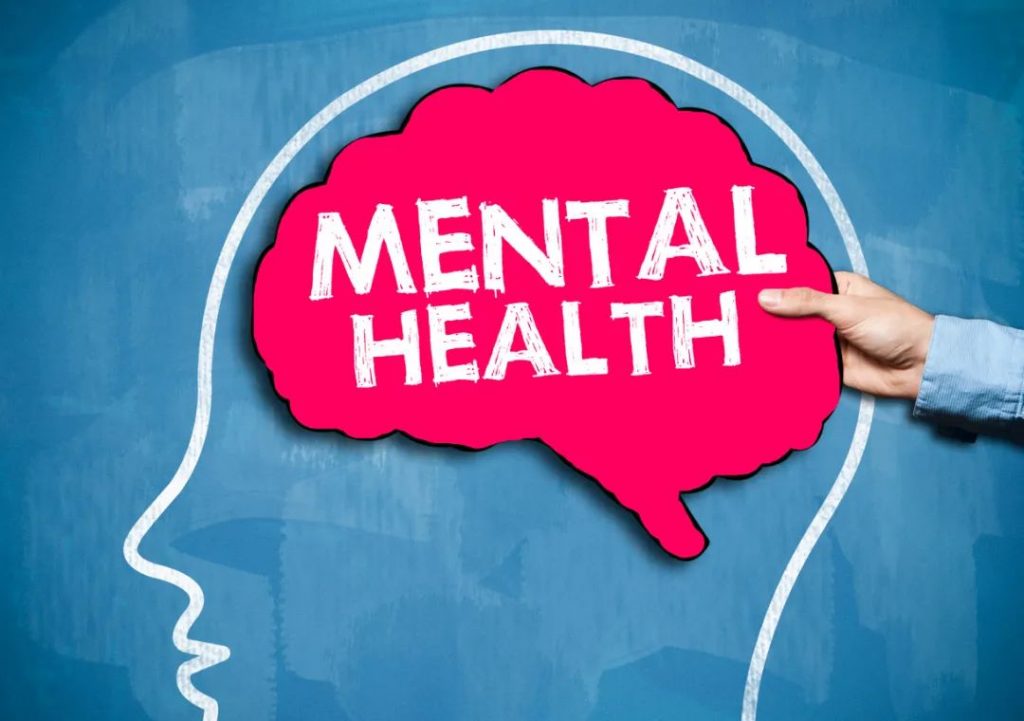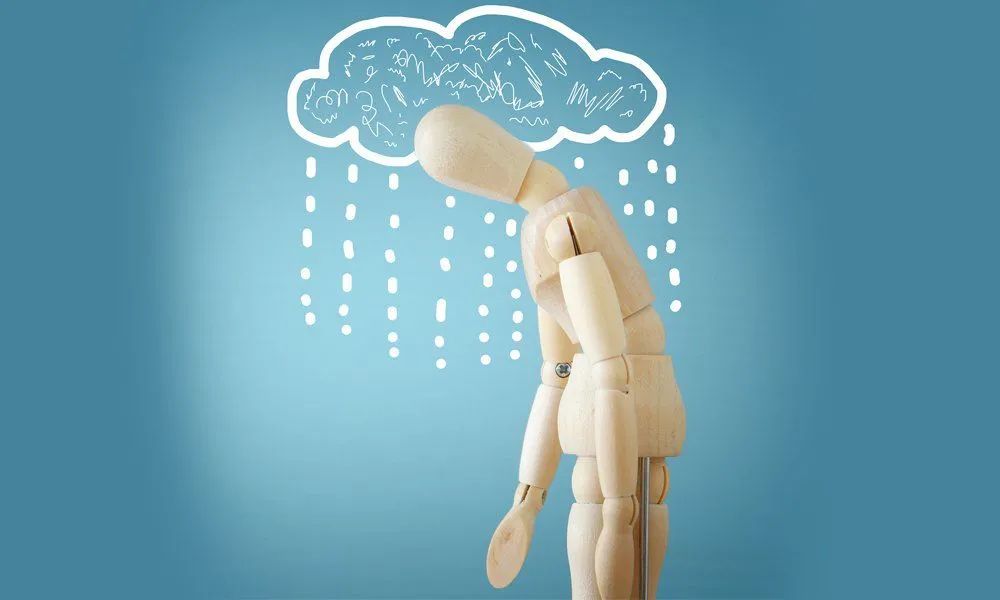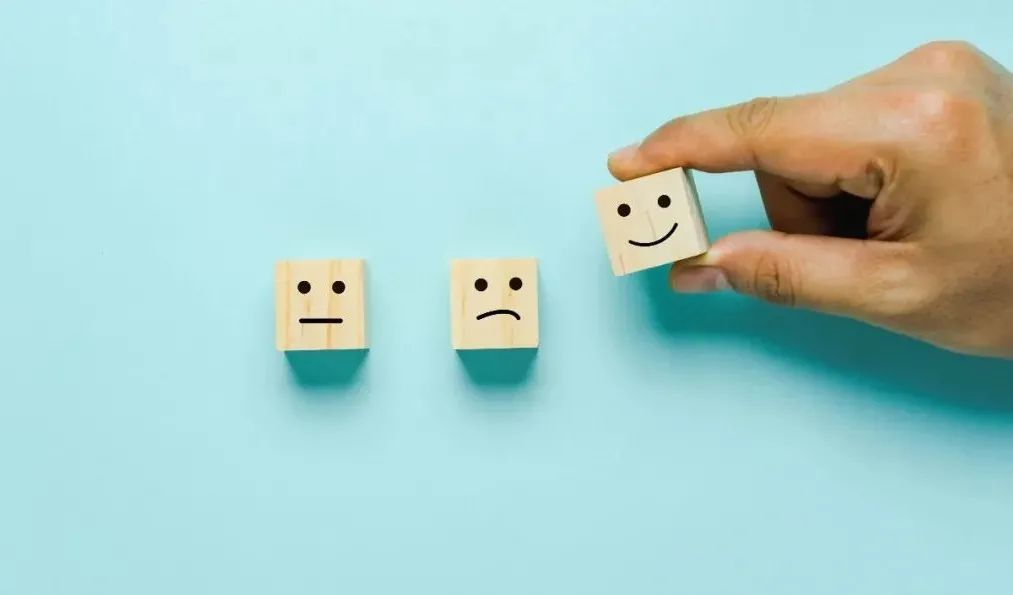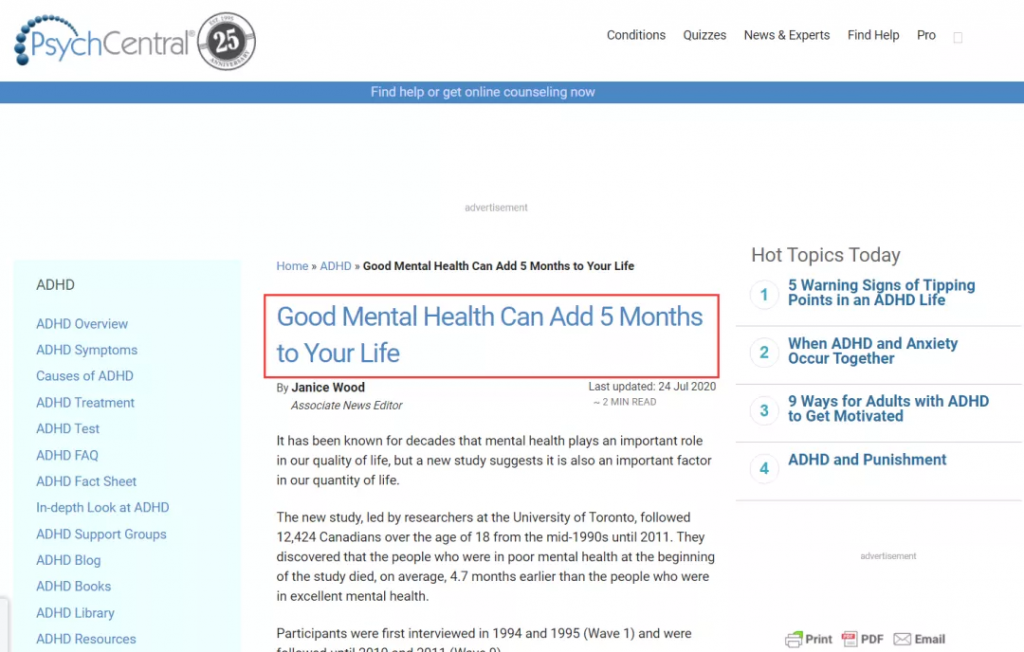
What is the state of “health”? The definition given by the World Health Organization is: health is not only the absence of disease or weakness, but a complete state of health with physical, mental, and social adaptability.
It can be seen that the importance of “mental psychology” to a person.

20% of illnesses are caused by psychological problems
In clinical practice, about 20% of diseases are caused by psychological problems, but many of them are treated as physical diseases.
Psychological problems are not always manifested in the heart. According to statistics from the World Health Organization, more than 70% of psychological disorders will “attack” body organs, among which the digestive system, endocrine system, and skin are the top three “scapegoats.”

Here are two real cases:
A man often feels that he can’t breathe, his breathing has to stop at any time, and he is afraid to sleep at home. He lives in a guest house in front of the hospital and is ready to receive rescue at any time. He said that as long as he saw the lights in the emergency room and the ambulance, he would be calmer.
There is another female patient who always feels stomach discomfort. After seeing it in the hospital, she has performed gastroscopy 20 times. The examination data is thick and no problem is found, but she just feels uncomfortable.
Both of these patients have “somatization disorders”, which belong to the category of mental and psychological diseases, and how many respiratory and gastroenterology departments cannot solve the problem.
Mental healthy people have longevity advantages
A good mental state is not only related to the quality of life, many studies have shown that it is also an important factor in extending life.

Researchers from the University of Toronto in Canada and the University of Texas at Arlington conducted an 18-year follow-up survey of 12,000 participants over the age of 18. The results showed that:
People with very good mental health at the beginning of the study lived an average of 4.7 months longer than those with poor mental health.
After excluding factors such as smoking, alcohol abuse, infrequent physical activity, and chronic diseases, those with poor mental health have a 14% higher risk of all-cause death after 18 years.

In February of this year, a 45-year-long study published in the famous psychiatric journal JAMA Psychiatry (“Journal of the American Medical Association”) found that early mental health problems can lead to middle-aged physical diseases and accelerate aging.
Preventing mental illness and monitoring the signs of aging in patients with mental illness can help reduce the incidence of illness and even extend a healthy lifespan.

Self-assessment: Are you mentally healthy?
What kind of state is considered mental health? Although there are different opinions, the ten criteria of mental health proposed by Maslow and Mittelman are the most influential in the world:
If you are in such a state often, it is to get along with yourself, others, and the world in harmony and pleasure.
■ 1. Have a moderate sense of security, self-esteem, and a sense of value for self-achievement;
■ 2. Self-criticism moderately, neither boasting nor condemning yourself excessively;
■ 3. In daily life, have moderate initiative and not be influenced by the environment;
■ 4. Reasonable, realistic, objective, maintain good contact with the real environment, can withstand setbacks in life, without excessive fantasies;
■ 5. Appropriately accept personal needs and have the ability to meet such needs;
■ 6. Have self-knowledge, understand one’s own motivation and purpose, and be able to make an objective estimate of one’s own abilities;
■ 7. Be able to maintain the integrity and harmony of personality, personal values can adapt to social standards, and be able to concentrate on one’s own work;
■ 8. Have realistic life goals;
■ 9. Have the ability to learn from experience and be able to adapt to the needs of the environment and change oneself;
■ 10. Have good interpersonal relationships, have the ability to love and be loved, have personal independent opinions, and have standards for judging right and wrong.
The following signs may be warning signs of psychological problems:
Fatigue, even a good night’s sleep not enough,
Insomnia, after a tiring day, you want to fall asleep, you can’t open your eyelids, but your brain is so clear,
Forgetful,
Easily get sick,
Chronic pain,
Abnormal emotions, decreased sense of security, self-esteem, and self-confidence, while negative emotions such as low self-esteem, fear, anxiety, and indifference are amplified,
Personality changes, sudden changes in temperament for a certain period of time, suspicious, even indifferent to relatives, partners, and friends, and reluctant to communicate more.
There are solutions for each of the 4 psychological barriers
Workplace pressure, parenting anxiety, competition from all walks of life… have given birth to more tension, anxiety, and depression in modern people. In response to common psychological barriers, psychologists have provided solutions:

Anxiety
“I am very worried that the next thing will not be handled well” is a common state of anxiety patients.
Short-term anxiety makes us realize that there is a “threat” around us, which is beneficial to human development. Excessive and long-lasting anxiety may cause anxiety, with physical symptoms such as pain, shortness of breath, nausea, and indigestion.
Suggestion: People with anxiety tendencies, pay attention to develop a regular work and life schedule, minimize uncertainty, and build a “sense of stability” for themselves.
Among them, reasonable management of time is particularly important. It can help reduce the urgency and powerlessness caused by delay. Arranging the time can help people be organized and calm.
Mistakes and mistakes can also cause anxiety. You may wish to reduce your impulsive behavior at ordinary times. Perhaps you can avoid anxiety from the source.
Depression
Depression is different from the usual mood swings. Patients have typical “three low symptoms”, including low mood, decreased interest, and decreased energy.
The diagnosis of depression requires face-to-face communication between a professional psychiatrist and the patient, and a comprehensive diagnosis with some psychological questionnaires. It is not even a depression that meets a few symptoms.
Recommendation: More than 70% of depression patients can be cured. If it is determined to be depression, professional treatment is required, including physical interventions such as psychological counseling, drug therapy, and transcranial magnetic stimulation.
For many people, exercise can effectively improve depression. Studies have proven that mindfulness meditation is an effective way to improve depression.
You can try to confide in your friends and don’t keep things in your mind. Keep yourself busy, go for a walk outdoors, or do some housework.
Try not to worry about sleeping well. Even if you can’t fall asleep, lying down and letting your body rest is good.
Insomnia disorder
Insomnia ≠ insomnia disorder, healthy people occasionally suffer from insomnia. But if the following three manifestations occur, you need to go to the psychiatric department to determine whether it is an “insomnia disorder”:
“Can’t sleep”, the time to fall asleep is longer than 30 minutes; “Bad sleep”, it is easy to wake up; “Wake up early”, it is difficult to fall asleep 30 minutes after waking up, lasting 3 months.
Recommendations: When it is difficult to fall asleep, do not exercise vigorously, do not smoke or drink 1 hour before going to bed; fix the time to fall asleep and wake up every day, cultivate a sleep rhythm, and weekends are no exception; do not take a nap for too long, just 20 minutes.
When you are not sleeping well, the room temperature should be controlled at 20℃~24℃, below 18℃, it is easy to wake up; cover with a thicker quilt; try to sleep naked; the bed should not be too soft to prevent the body from sinking and waking up.
When you wake up early, the bedroom should be quiet and the curtains should be shaded; soak your feet before going to bed; don’t drink too much water before going to bed to reduce wake-ups; do more exercise during the day; get more sun to accumulate natural melatonin.
Bipolar disorder
The emotional changes of patients with bipolar disorder are extremely extreme: they are confident and excited when they are happy, despair when they are sad, and like ice and fire for a while.
Recommendation: Regular sleep and activities are especially important for the patient’s recovery.
Many bipolar patients have a strong motivation for achievement, and achievement motivation causes stress. This requires patients to learn to modify achievement goals and make them feasible.
The family members and friends of the patient give sufficient respect and care, so that they have the confidence to restore their emotions and rebuild their interpersonal network.
Even if a person is physically disabled, as long as he is mentally and mentally healthy, he can get rid of pain and live a valuable and meaningful life. On the contrary, even if the material life is abundant, but every day anxious, the quality of life will be greatly reduced. From today on, pay attention to your mental health as you care about blood pressure and blood sugar.
Comments